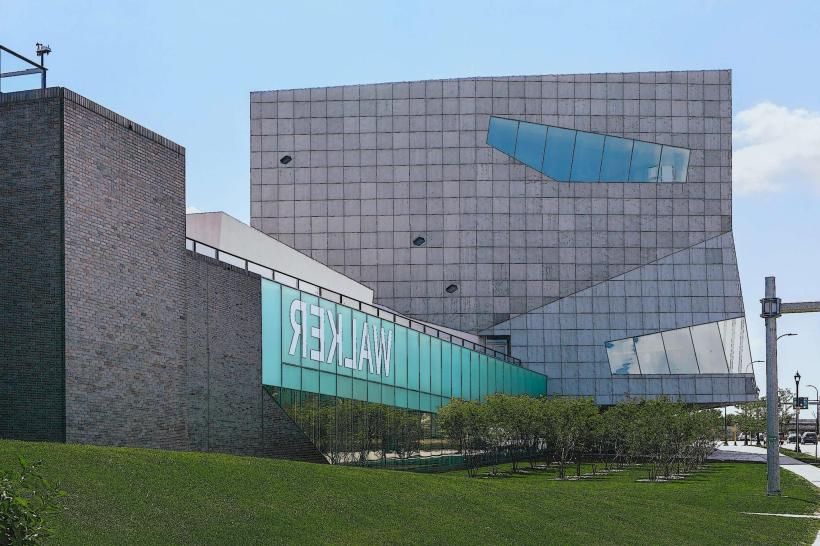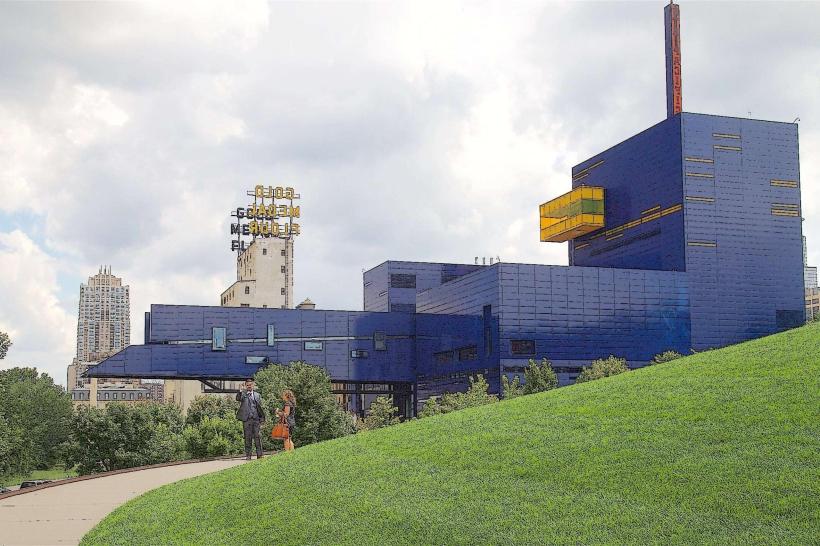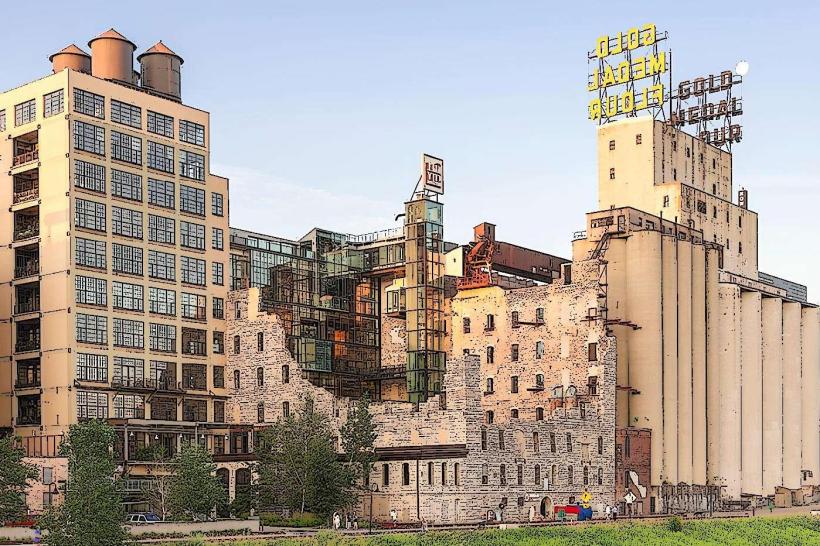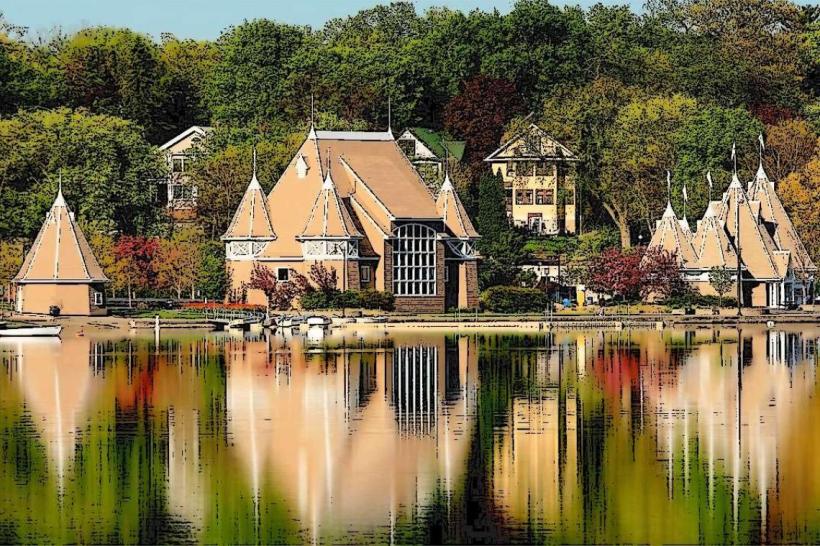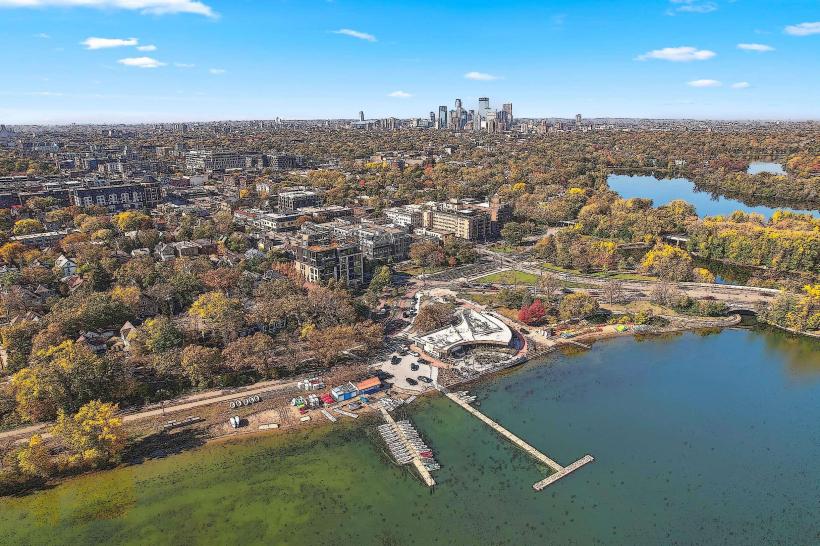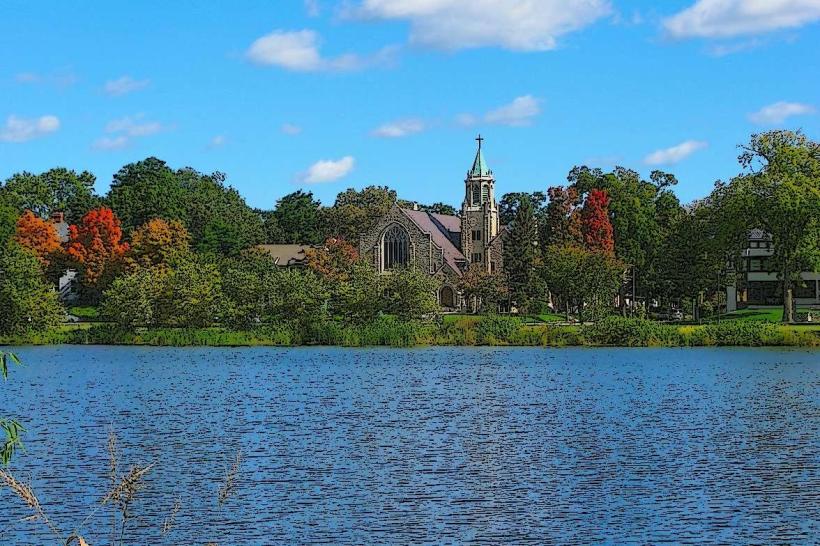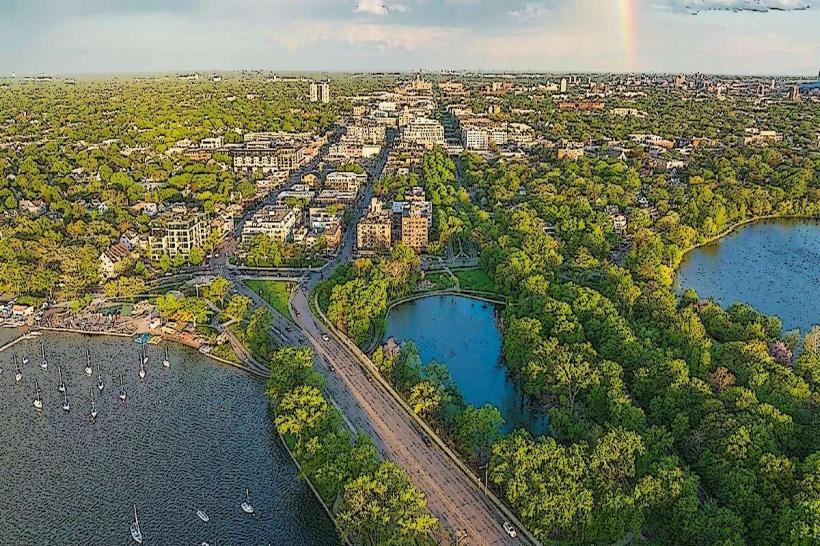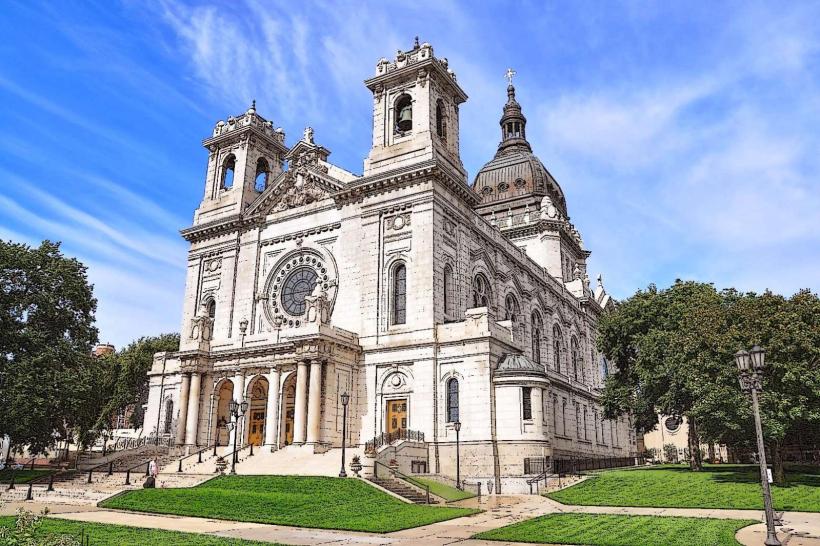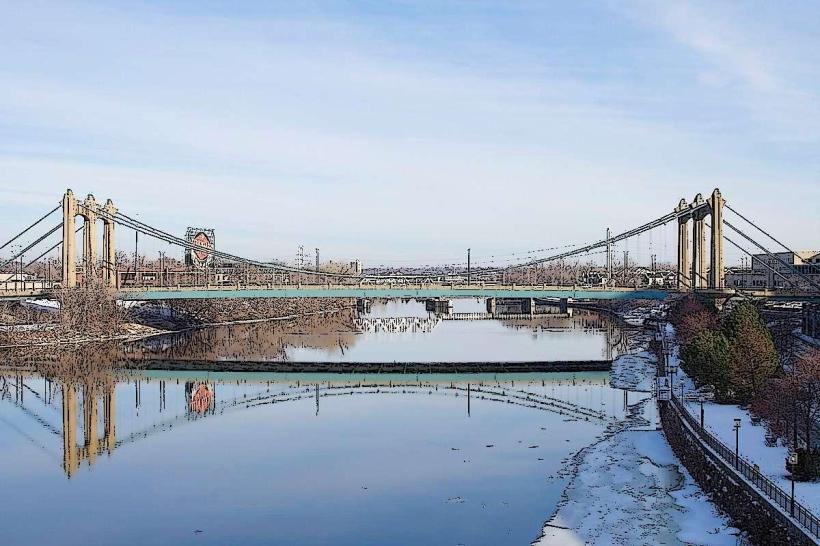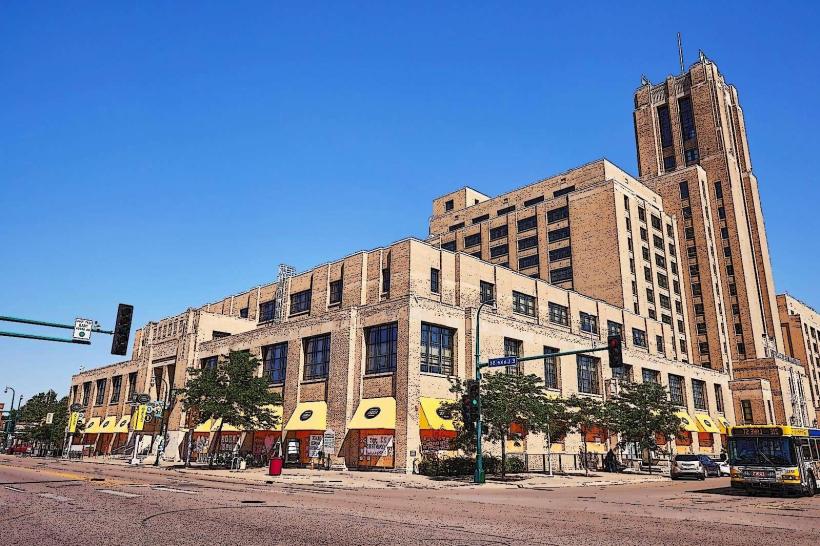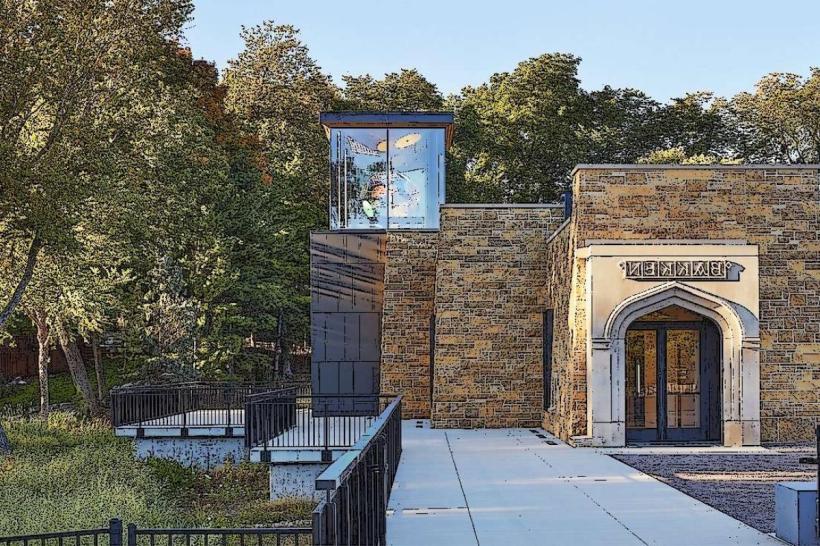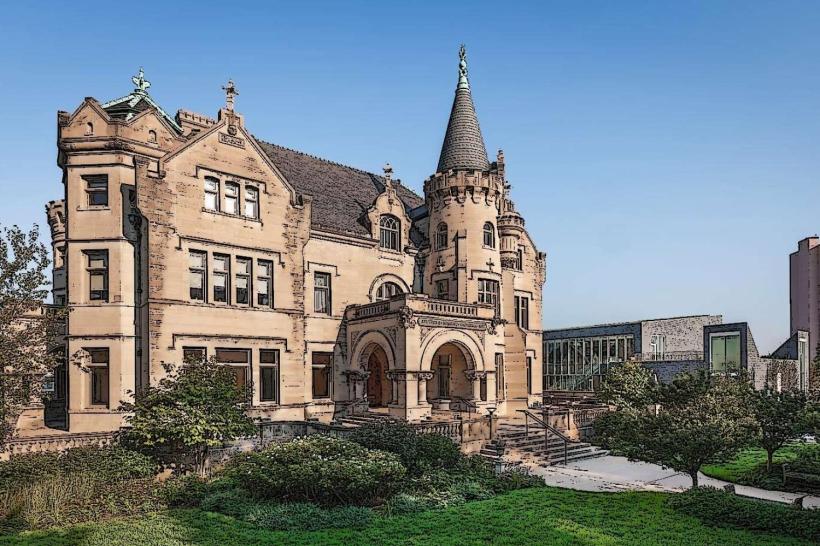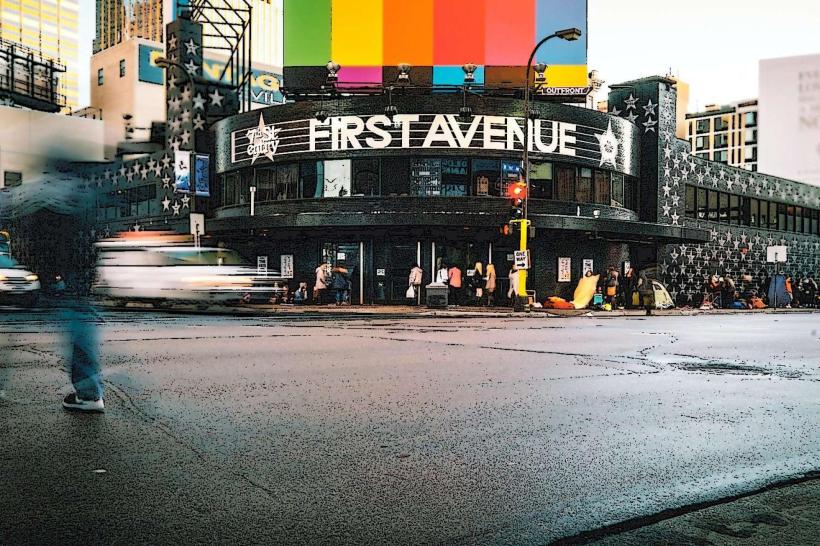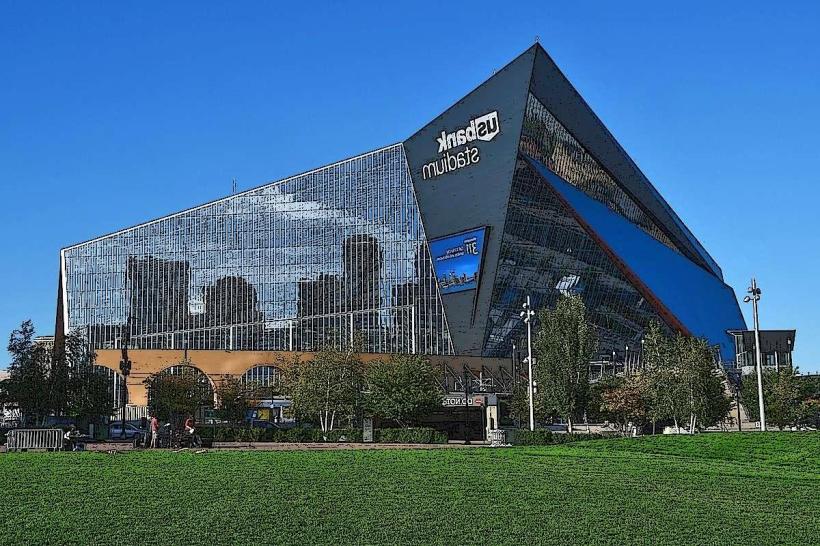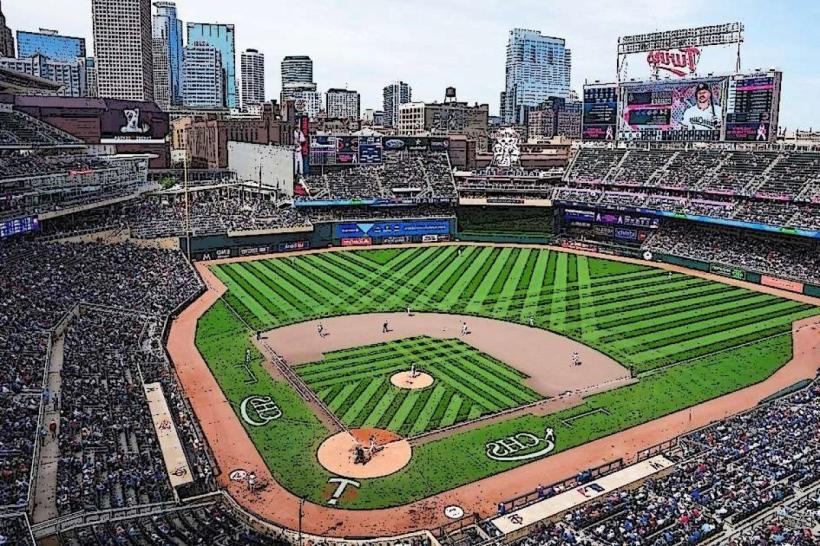Information
Landmark: Foshay TowerCity: Minneapolis
Country: USA Minnesota
Continent: North America
Foshay Tower, Minneapolis, USA Minnesota, North America
Foshay Tower is a historic skyscraper and architectural landmark located in downtown Minneapolis, Minnesota. Completed in 1929, it was originally built as the headquarters for utility magnate Wilbur Foshay’s business empire and symbolized the ambitious economic optimism of the Roaring Twenties. For over four decades, it was the tallest building in Minneapolis, holding that distinction until the completion of the IDS Center in 1972.
Architectural Design and Features
The design of Foshay Tower was inspired by the Washington Monument in Washington, D.C., reflected in its tapered, obelisk-like form. The building rises 32 stories high, reaching a height of approximately 447 feet (136 meters). It was designed by the Minneapolis architectural firm Magney & Tusler, led by architect Léon Eugène Arnal.
The tower’s exterior is clad in Indiana limestone, giving it a dignified and monumental appearance. The limestone’s light color contrasts with the dark bronze window frames, creating an elegant Art Deco aesthetic. The building’s stepped pyramid roof features the name “FOSHAY” illuminated on all four sides in 10-foot-tall letters, a distinctive and recognizable feature of Minneapolis’s skyline.
Inside, the Foshay Tower was richly decorated to evoke luxury and grandeur. The lobby and interior spaces feature African mahogany paneling, Italian marble floors, and extensive use of gold-plated fixtures and ornamental detailing. The lavish interior design was meant to convey wealth and prestige, consistent with the image Wilbur Foshay sought for his corporate headquarters.
Historical Context and Significance
Wilbur Foshay was a prominent businessman in the utilities sector who envisioned the tower as a monument to his success. He intended the building not only to house his company offices but also to include a personal penthouse apartment near the top floors. The Foshay Tower was a symbol of Foshay’s influence and the rapid growth of Minneapolis during the 1920s.
However, the tower’s completion coincided with the onset of the Great Depression. The stock market crash of October 1929 devastated Foshay’s financial empire, leading to his bankruptcy and loss of the building shortly after its grand opening. Despite Foshay’s personal misfortune, the tower endured as a prominent fixture in Minneapolis.
Over the decades, the building has undergone various changes in ownership and use but has retained its architectural integrity and historic significance. It was designated a Minneapolis Landmark in 1978 and added to the National Register of Historic Places, cementing its importance as an architectural and cultural treasure.
Modern Use and Visitor Experience
In 2008, the Foshay Tower underwent a major restoration and adaptive reuse project that transformed it into a luxury boutique hotel-W Minneapolis – The Foshay. The renovation preserved many of the tower’s original Art Deco features while updating it to meet modern hospitality standards.
The building houses hotel guest rooms and suites, a sophisticated lobby, event spaces, and the Prohibition Sky Bar located on the 27th floor. The Sky Bar is particularly popular for its classic cocktail offerings paired with sweeping panoramic views of the Minneapolis skyline, the Mississippi River, and beyond.
Visitors can access the observation deck on the 30th floor, which offers 360-degree views of the city. Although the observation deck is typically accessible only to hotel guests or those with special permission, it remains a sought-after vantage point for those interested in Minneapolis’s urban landscape.
Location and Accessibility
Foshay Tower is located at 821 Marquette Avenue in downtown Minneapolis, placing it in the heart of the city’s central business district. Its proximity to major office buildings, theaters, restaurants, and cultural institutions makes it an integral part of downtown Minneapolis’s architectural fabric.
Summary
Foshay Tower stands as a monument to early 20th-century ambition and design, combining the elegance of Art Deco architecture with a rich narrative of economic boom, bust, and revitalization. Its distinctive silhouette, luxurious materials, and historical legacy continue to make it one of Minneapolis’s most iconic buildings. Today, it serves both as a functioning luxury hotel and a cherished piece of the city’s heritage, welcoming visitors to experience its grandeur and spectacular city views.


